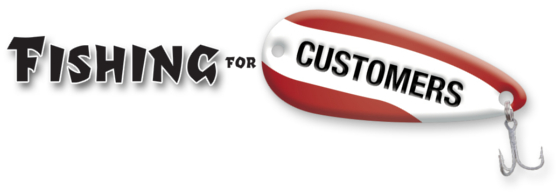As an advertising practitioner, I see a lot of crap masquerading as well-thought-out marketing. I’m reminded of Hippocrates instruction: “First, do no harm.“*
Every day we all see advertising campaigns that harm the advertiser’s image, damage his credibility, and even convince shoppers to avoid his products or services. When I think of the number of copywriters, copy chiefs, creative directors, account executives, and even clients themeslves who’ve added their initials to these ads as they gathered approval along the chain of command, I’m amazed.
First, do no harm.
This should be required of everyone in my profession.
I also realize that the client is going to have the final say, and that sometimes our clients are determined to do exactly what we advise them against.
What do we do when faced with a client who’s going to do things his way? Do we cut loose and protect our own reputations by refusing to be associated with ineffective, weak, or even harmful advertising? Or, do we stay and try to keep the impending damage to a minimum?
I compare this dilemma to a golf lesson. If the instructor recommends a five iron, and the pupil insists on using a wood, does the instructor tell the student “Do it my way or I’m walking?” Or, does he say “If you insist on using that wood, remember to get your stance solid, keep your left arm stiff, keep your head down, keep your eye on the ball, and remember to follow through?”
I faced that exact situation this week. My client owns an Italian restaurant. His service is amazing, and his food is prepared fresh, from scratch, daily. These are strong advantages on which to build a campaign. He, however, insists that we must tell people all of the items on his menu.
I’m trying to make his restaurant stand out from all of the other eateries in town, and my client wants to tell people that at HIS Italian restaurant they serve lasagna, spaghetti, pasta prima vera, and fettucini Alfredo.
I have never known consumers to be fascinated with a long list of products.
In my heart of hearts, I don’t believe the ads he’s demanding are going to get the results he’s expecting. He may see an increase in business, but I don’t believe he’ll be getting the maximum impact from his advertising investment.
I like the guy. I want him to do well. I know that I can make him better ads than he can do for himself, even when they’re largely lists of dishes from the menu.
But if he already knows exactly what his ads should “sound like,” he really doesn’t need me.
I just hope he remembers to get his stance solid, keep his left arm stiff, keep his head down, keep his eye on the ball, and he remembers to follow through. *
“First, Do No Harm” Is Not in the Hippocratic Oath. You’ll find that Wizard of Ads ® partners are quite particular about is accurately sourcing the information we pass along. When I started to write this article, I believed that “first, do no harm” was from the Oath of Hippocrates. I was surprised to find that the oath never contained those words.
It appears that Hippocrates did originate the phrase, but in another of his writings: “Epidemics.” In book two, section eleven, a translation from the original Greek reads Declare the past, diagnose the present, foretell the future; practice these acts. As to diseases, make a habit of two things—to help, or at least to do no harm.”
Send This Page To A Friend
